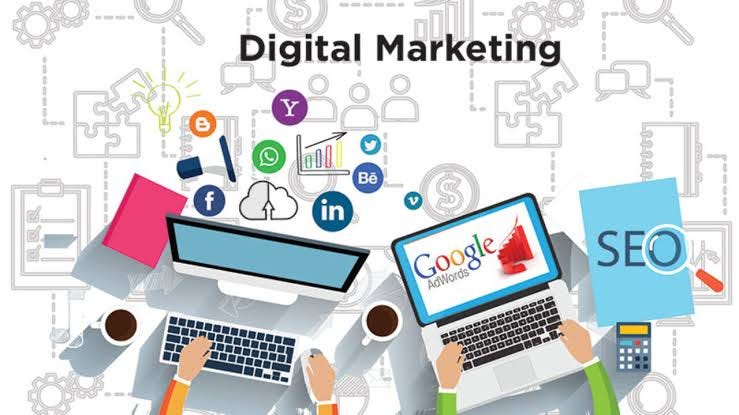Digital Marketing: Navigating the Modern Business Landscape

https://seoservicegurus.com/digital-marketing-services/ In today’s interconnected world, digital marketing has become an indispensable tool for businesses aiming to thrive in the competitive landscape. This article explores the evolution, key components, challenges, and future trends of digital marketing, empowering businesses to navigate the modern business landscape effectively.
Evolution of Digital Marketing
In recent years, the landscape of marketing has undergone a profound transformation, with digital channels revolutionizing the way businesses connect with their audience. Traditional marketing approaches are gradually being overshadowed by the dynamic and interactive nature of digital marketing strategies. https://symbiacanada.ca/a-comprehensive-roadmap-to-master-mern-stack-development/
Traditional Marketing vs. Digital Marketing
Traditional marketing relied heavily on print, television, and radio advertisements, targeting broad audiences without precise metrics for effectiveness. In contrast, digital marketing leverages online platforms to reach specific demographics, allowing for targeted campaigns and real-time performance tracking.
Rise of Online Platforms
The proliferation of online platforms, such as social media networks, search engines, and e-commerce websites, has provided businesses with unprecedented opportunities to engage with consumers. These platforms serve as fertile ground for digital marketing efforts, enabling businesses to amplify their brand message and drive conversions.
Key Components of Digital Marketing
Digital marketing encompasses a diverse range of strategies and tactics, each serving a unique purpose in reaching and engaging target audiences.
Search Engine Optimization (SEO)
SEO focuses on optimizing a website’s visibility in search engine results, enhancing organic traffic and improving search engine rankings.
Content Marketing
Content marketing involves creating and distributing valuable and relevant content to attract and retain a targeted audience, ultimately driving profitable customer action.
Social Media Marketing
Social media marketing leverages social media platforms to connect with audiences, build brand awareness, and foster customer engagement through tailored content and targeted advertising.
Email Marketing
Email marketing remains a powerful tool for nurturing leads and fostering customer relationships, delivering personalized content directly to the inbox of subscribers.
The Importance of Data Analytics
Data analytics play a pivotal role in digital marketing, providing actionable insights into consumer behavior, campaign performance, and market trends. By leveraging data effectively, businesses can refine their strategies and optimize their marketing efforts for maximum impact.
Challenges in Digital Marketing
Despite its numerous benefits, digital marketing presents its fair share of challenges and complexities.
Rapid Technological Changes
The rapid pace of technological innovation poses a challenge for businesses striving to stay ahead in the digital marketing landscape. Adapting to new platforms, algorithms, and consumer preferences requires constant vigilance and flexibility.
Information Overload
The abundance of content and advertisements vying for consumer attention has led to information overload, making it increasingly challenging for businesses to cut through the noise and capture audience interest.
Effective Strategies for Success
To succeed in the dynamic world of digital marketing, businesses must adopt effective strategies that resonate with their target audience and drive meaningful results.
Audience Targeting
Effective audience targeting involves identifying and segmenting specific demographics based on their interests, behaviors, and preferences, allowing businesses to tailor their marketing messages accordingly.
Personalization
Personalization is key to engaging today’s consumers, who expect personalized experiences and relevant content tailored to their needs and preferences.
Omnichannel Approach
An omnichannel approach integrates multiple marketing channels seamlessly, providing a cohesive and integrated brand experience across all touchpoints, from social media and email to website and mobile apps.
Future Trends in Digital Marketing
Looking ahead, the future of digital marketing is filled with exciting possibilities and emerging trends.
Conclusion
In conclusion, digital marketing has transformed the way businesses connect with consumers, offering unprecedented opportunities for engagement and growth. By embracing digital strategies, businesses can navigate the modern business landscape with confidence, leveraging data-driven insights and innovative tactics to drive success.




